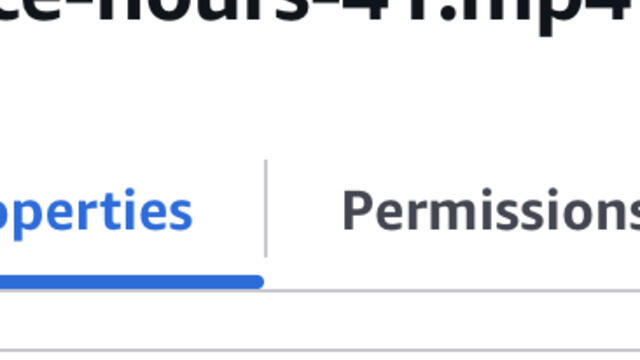University of Tulsa College of Law Overview
The University of Tulsa College of Law is rated among the best values in law education. With a total enrollment of 400, the College of Law offers education opportunities to LLM, JD, MA, and MS candidates.
TU College of Law provides an academically friendly environment where students are introduced to the principles of law through rigorous courses of study and participation in empirical learning programs. The programs are designed to appeal to people with different interests, backgrounds, and talents.
The College offers a low student-to-faculty ratio (7.6:1), providing students with personalized education and diverse opportunities for practical experience. Students have access to some of the top professional development offices in the country, including a comprehensive library, a high-tech courtroom, and the local community.
The school is proud of its supportive alumni community, which consists of more than 6,000 alumni who developed successful careers as corporate counselors, legislators, judges, and lawyers. Alumni are deeply involved with new students and graduates through mentoring programs, offering many internship opportunities and additional on-campus lectures.
With more than 150 external partners, including the U.S. Department of Health and Human Services, the American Civil Liberties Union, and New York County Defender Services, Tulsa Law continues to participate in experiential learning programs to help students experience the law and practice the methods. The school concentrates on a variety of law areas, including criminal law, corporate law, health law, Indian law, sustainable energy and resources law, and litigation.
University of Tulsa College of Law was the first facility to offer a dedicated course of study that teaches students about tribal legal issues. Oklahoma is home to almost 40 Indian tribes and law firms and businesses that provide learning opportunities.
Students interested in health law – including medical malpractice, disability law, elder law, and medical ethics – may select an academic program to correspond to their interests.
University of Tulsa College of Law Rankings
The University of Tulsa College of Law consistently takes top rankings in PreLaw magazine and, in 2018, received an "A" grade in the overall ranking. It is rated among the Best Value Law Schools and is one of the most affordable private law programs.
The college ranks very highly (92.5%) in terms of bar passage rate among first-time test takers and outperforms the state of Oklahoma's passage rate.
In terms of employment, University of Tulsa College of Law is ranked No. 1 in the state of Oklahoma and No. 10 in the U.S.
University of Tulsa College of Law Admissions
What is the University of Tulsa College of Law Acceptance Rate?
The higher the ranking of a college, the harder the college is to get into, which creates a challenge for some students. When students look at and compare colleges, acceptance rates are one of the first things they consider as they weigh their chances of approval. A university with low acceptance rates hints at a tight competition, and a university with a high acceptance rate may not be as selective as a school an accomplished and talented student might pick.
College acceptance rates can depend on achievements and knowledge but aren't necessarily the most important details a student should consider when looking for a quality education. Program selection, population diversity, and alumni success are three other factors to consider, and the University of Tulsa College of Law offers them under one roof. The school is considered highly competitive and accepts only 41.7% of the total number of applicants.
| Applications | Offers | Matriculated | |
| Class of 2024 | 661 | 245 (37.07%) | 86 (13.0%) |
| 25% | Median | 75% | |
| GPA | 2.98 | 3.31 | 3.57 |
| LSAT | 151 | 154 | 156 |
University of Tulsa College of Law LSAT Percentiles
| 75th percentile | 156 |
| 50th percentile | 154 |
| 25th percentile | 151 |
Want to get into the University of Tulsa College of Law? Sign up for LSATMax.
2019 Entering Class Profile
| Number of Students | 281 |
| LSAT Score | 154 |
| Undergraduate GPA | 3.09 – 3.63 |
| % Women | 43.9% |
| % Students of Color | 9.3% |
| % Enrolled Directly After College | 95% |
What is the Tuition for University of Tulsa College of Law?
| In-State Resident | Non-Resident | |
| Full Time | $26,098 | N/A |
| Part Time | $14,310 | N/A |
What are the Living Expenses at University of Tulsa College of Law?
| On-Campus | $15,584 |
| Off-Campus | $18,060 |
What are the Housing Options at University of Tulsa College of Law?
| On-Campus | Yes |
| Off-Campus | Yes |
Bar Passage Rates at University of Tulsa College of Law
| Reporting | 79.4% |
| First-Time Takers | 92 |
| University of Tulsa Average | 90.4% |
| Oklahoma Average | 84.1% |
| National Average | 79.64% |
Application Deadlines
When will the University of Tulsa College of Law application materials be available?
All application materials will be available by November 1.
When does the University of Tulsa College of Law begin accepting applications?
Using a rolling admissions process, University of Tulsa College of Law starts accepting applications each year on August 1 for the following academic year.
For spring applicants, the deadline is December 1. For summer applicants, the deadline is April 13. For fall applicants, the deadline is July 31, but applying early in the year – before February 1 – is recommended.
How are applications to the University of Tulsa College of Law submitted?
All applicants are required to apply via the Law School Admission Council, or LSAC, online at lsac.org. An application fee of $30 is required unless a fee waiver has been accepted.
Applicants are required to submit documents online via LSAC through this process:
- Create an account
- Sign up for the Law School Admission Test (LSAT)
- Sign up for the Credential Assembly Service (CAS)
- Gather the necessary university transcripts
- Ask for letters of recommendation
- Apply
Does the University of Tulsa College of Law have an "early admission" or an "early decision" process?
The University of Tulsa College of Law doesn't have an "early admission" or "early decision" process. Applications are examined as they are received.
For more information, contact the Office of Admissions at lawadmissions@utulsa.edu.
How much is the application fee, and when is the deadline?
| Application Fee | $30 |
| Early Decision Deadline | N/A |
| Regular Decision Deadline | February 1 |
Does the University of Tulsa College of Law grant interviews?
The University of Tulsa College of Law doesn't require interviews for admission. However, the Office Admission team is always ready to help students obtain the necessary information regarding the university. Student representatives can be reached by email at lawadmissions@utulsa.edu to schedule a one-on-one meeting.
Employment After The University of Tulsa College of Law
| Median Salary Private Sector | $60,000 |
| Median Salary Public Sector | $52,300 |
Attending law school requires a big investment with the goal of securing a stable job upon graduation. Students at the University of Tulsa College of Law receive a high level of personalized support, services, resources, and access to the faculty's official job database. With career counseling, resume and cover letter review, practice areas, and interview preparation, the school helps students pursue the jobs of their dreams.
Exceptional students can work as part-time associates or secure long-term attorney positions. The University of Tulsa College of Law is an American Bar Association-accredited law school and a respected member of the Association of American Law Schools, or AALS. The school values the diversity of the students and maintains non-discrimination standards.
University of Tulsa College of Law graduates figure prominently in various government, business, academia, and public service, law firms, and the judiciary. Among the class of 2019, around 79% of the graduates reported their employment status:
- About 59% found employment in law firms within nine months of graduation.
- About 22% found jobs in the business sector, 9% in the public interest sector, 9% in the government sector, and 1% in the academic sector.
- About 64% found work in Oklahoma. The next most popular work destinations were Texas at 13% and California at 2%.








